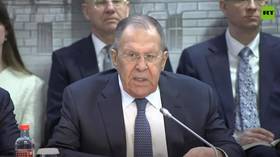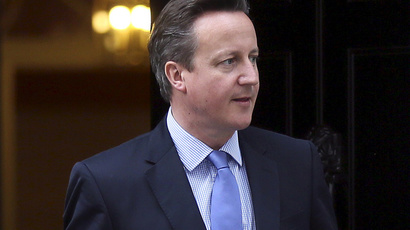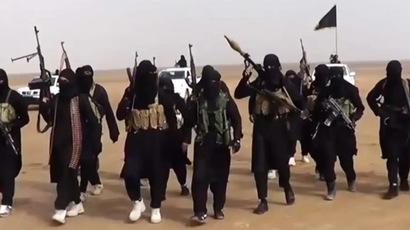UK military plans 3 new Middle East bases to battle ISIS
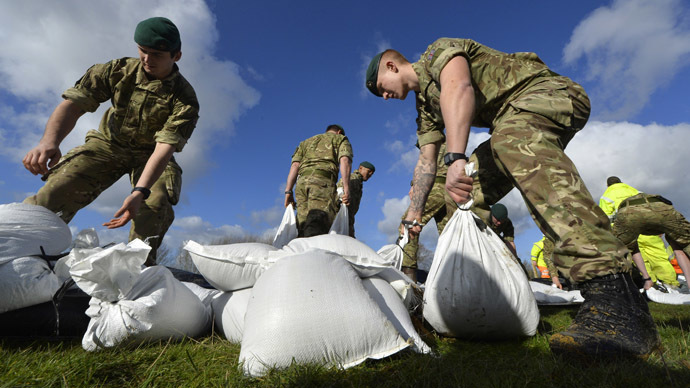
Three British military bases could be set up in the Persian Gulf to fight the Islamic State (IS, formerly ISIS), a source in the Ministry of Defence said. The bases could be part of a larger US-led offensive to battle militants in Iraq and Syria.
The United Arab Emirates (UAE), Oman and Bahrain are all potential candidates to host the bases, the ministry source told the Times on Wednesday. The move would follow an agreement by NATO leaders to ramp up efforts to contain the terror threat emanating from the region.
UK forces already use the Al-Minhad airbase near Dubai to fly troops in and out of Afghanistan.
“You could see an infantry battalion based in Al-Minhad, being able to train alongside the Emirates,” a defense source said.
It is also believed the Royal Navy would like to see the port in Bahrain expanded to accommodate more sailors and bigger warships.
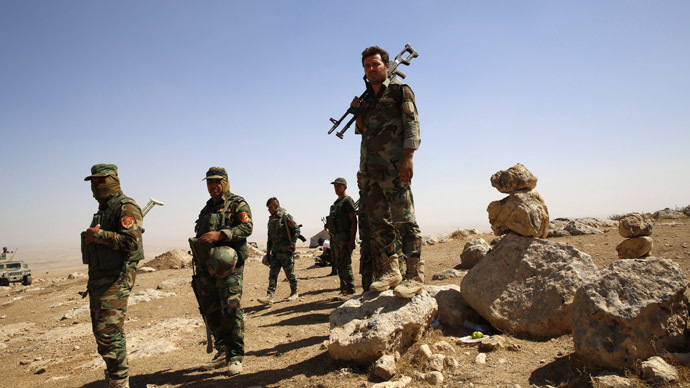
Work reportedly began on establishing new bases before the rise of the IS. The effort is part of a review of the UK’s presence in the Gulf following the NATO withdrawal from Afghanistan in December.
“The effect is that we are making a strategic adjustment, which is in my view quite sensible,” said Michael Clarke, director of the Royal United Services Institute (RUSI) think tank.
“But it is not something that I think has come from Downing Street. This has come through the armed forces working it out.” The bases would be “smart footprints,” unlike the large facilities seen in Afghanistan, said Clarke.
While still in the development stages, a spokesman for the MoD said any new UK military presence in the region would represent a continuance of the UK’s partnership with its Gulf allies.
“The British military has maintained a constant presence in the Middle East since the 1980s and our armed forces routinely exercise with members of the Gulf Co-operation Council,” the MoD spokesman told the Times.
“The MoD is currently looking at its future engagement in the region including options for our military presence in the Gulf; this work is still in development and no final decisions have yet been made.”
A former British ambassador to the United Nations, Sir Jeremy Greenstock, said maintaining such a UK military presence in the region would help deter the IS from expanding into the territory of its vulnerable neighbors.
“It will also make it more difficult for some internal cell in Bahrain or UAE or wherever to think they can have a go at the local government if they see some highly trained and capable people standing alongside the government,” he told the Independent.
“It all tends towards stabilizing the situation for these quite vulnerable states because they are so small.”
IS insurgents have been fighting the Syrian government since 2012. In 2014, it launched a new assault on Iraq, capturing areas in the north of the country and proclaiming an Islamic caliphate.
The British government announced on Wednesday it is providing heavy machine guns and ammunition, worth about 1.6 million pounds, to Kurdish forces fighting IS militants.
A recent Sky News poll showed an overwhelming majority of British people think the UK should take military action against ISIS. The result followed an ISIS warning that it would behead a British hostage if the US and its allies continue airstrikes on Islamic State positions.
Prime Minister David Cameron has not ruled out committing the UK to aiding US airstrikes.


